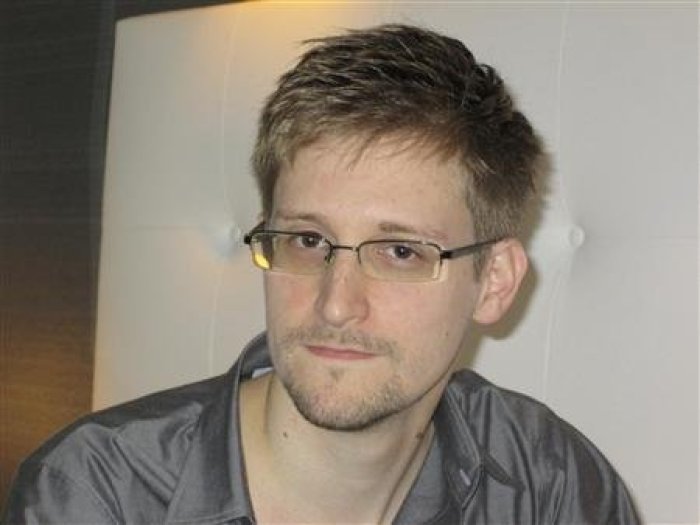Ex-CIA Whistleblower Snowden Denies Congressmen's Charge: 'Not a Chinese Spy'

Edward Snowden, the ex-CIA whistleblower responsible for "the biggest intelligence leak in the National Security Agency's (NSA) history," denied allegations that he was a Chinese spy.
During a Monday question-and-answer session with Britain's newspaper The Guardian, Snowden said, "No. I have had no contact with the Chinese government. Just like with the Guardian and the Washington Post, I only work with journalists."
Last week, members of the United States House of Representatives Intelligence Committee questioned Snowden's connection with China. "We need to ask a lot more questions about his motives, his connections, where he ended up, why he is there, how he is sustaining himself while he is there and is the Chinese government fully cooperating," said Rep. Mike Rogers (R-Mich.).
Dutch Ruppersberger (D-Md.) agreed, saying "It seems unusual that he would be in China and asking protection of the Chinese government, and giving press conferences to Chinese media."
On Monday, a spokeswoman for China's foreign ministry, Hua Chunying, explicitly denied Snowden's connection with China. She called the idea "utter nonsense."
Nevertheless, Adam Segal, Maurice R. Greenberg Senior Fellow for China Studies at the Council on Foreign Relations, called Snowden's decision to move to China "a strange choice overall." In an interview with The Christian Post, he noted the strain this move has caused to U.S. foreign relations.
"The Chinese press is using it to press against the criticism of China that President Obama made in the summit with President Xi," he said, noting Obama's listing of Chinese cyber-attacks on U.S. businesses at a 2-day meeting with China's Xi Jingping. Snowden's information allows the Chinese press to "change the subject from Chinese hacking to U.S. hacking."
Snowden claims he leaked the information to stand up for civil liberties. Phillip Lohaus, research fellow at the Marilyn Ware Center for Security Studies at the American Enterprise Institute, disagrees.
In an article for the Daily Caller, he pointed out that Snowden kept working in the intelligence community long after he allegedly became disillusioned in 2007, overlooked the "appropriate whistleblowing channels within the government," and took four laptops with information.
"If he were a hero he would have stuck to his principles," Lohaus told CP in an interview Monday. "He could have quit," but seemed to stay for the money.
Nevertheless, many see Snowden as a hero. Lohaus cited a Guardian report that the Chinese hold a deep respect for him. In a Reuters Poll last Wednesday, 31 percent of Americans called the whistleblower a "patriot" while 23 percent denounced him as a traitor, and 46 percent said they didn't know.
"The Chinese are living under one of the most oppressive regimes in the world in terms of repression from the government," Lohaus explained. "When they see transparency, that is something they admire."
Although the majority of Hong Kong citizens oppose returning Snowden to the U.S., "they do have an extradition treaty," which binds them to return him if the U.S. requests it. There have been exceptions in the past, but Lohaus added that "the political fallout of keeping him – that would likely be very large."
Similarly, in the wake of the many scandals of the past few months, "there is a widespread dissatisfaction with the Federal Government these days and Snowden gives them a hero to worship."
More than 50,000 Americans have even signed a petition requesting that President Obama pardon Snowden.
While many Tea Party groups admire Snowden, Lohaus expressed "sympathy with Cheney's argument." Former Vice President Dick Cheney called the ex-CIA man "a traitor."
"I don't think this is an example of big government really exceeding their authority," Lohaus explained. He mentioned rhetoric comparing the government programs as "very 1984-esque, total knowledge," but argued that "most of the information will never even be looked at."
"One thing that I've always found ironic about people who are worried about this kind of thing," he added, is that "many people will share their information on Facebook." Everyday Americans "are oddly ok with giving that information to the private sector, but when it comes to the government, they're not ok."
Lohaus expressed the need for Americans to solve this conundrum. Nevertheless, he said, "I don't think leaking the information is the right way to start the conversation."
"The successes of the intelligence community are quiet but many and their failures are loud but few," he noted. "I think the major decline of terrorist attacks in the United States, with the exception of the Boston Bombing," demonstrates the effectiveness of U.S. intelligence.
"The government doesn't have quite as deep a handle on people's information as they are suspecting," he argued, adding the more surveillance might keep America safer.




























